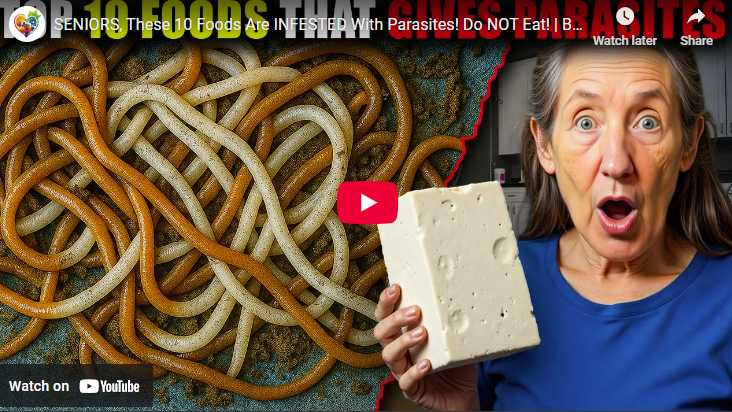
Understanding the Hidden Dangers in Common Foods
If you've ever experienced fatigue, bloating, or that persistent foggy feeling, you may want to reconsider what's on your plate. The shocking truth is that many everyday foods could be harboring parasites that impact your health, particularly as you age. According to recent studies, over 3.5 billion people globally are grappling with some form of parasitic infection—many of whom are unaware. The prevalence of parasites is not restricted to underdeveloped countries or unsanitary water; they thrive in the foods we consume and can significantly affect our well-being.
In SENIORS, These 10 Foods Are INFESTED WITH Parasites! Do NOT Eat! | Barbara O’Neill, the discussion dives into crucial dietary insights that can help seniors avoid potential health risks.
The Top Foods to Avoid and Why
In a recent informative video by Barbara O’Neill, attention was drawn to the ten foods seniors should steer clear of to prevent parasite infections. Among these, undercooked meats—especially pork and wild game—rank high. These products can harbor harmful parasites like trichinella, which can cause severe muscle pain and other discomforts. It's essential to ensure that meats are cooked to safe internal temperatures. A quick use of a meat thermometer could save you from prolonged recovery and discomfort.
Seafood: Enjoyable but Potentially Hazardous
Raw fish is another item of concern, especially sushi and ceviche, which may carry parasites like anisakis. Seniors with a weaker gut lining are at increased risk of complications. Ensuring fish is sourced from reputable suppliers and is frozen correctly can mitigate these dangers. Cooking seafood to the appropriate temperature turns a risky dish into a safe delight.
Cleanliness is Key: The Importance of Washing Produce
Fruits and vegetables, typically viewed as health staples, can also pose risks if not washed properly. Produce may carry parasite eggs clinging to their surfaces, and seniors should be extra vigilant in rinsing and preparing these foods. A simple habit of thorough washing or peeling could prevent unpleasant infections.
Protect Your Health Today
Knowledge is the first step toward prevention. Understanding the risks associated with certain foods can empower you to make healthier choices. Always prioritize food safety, inquire about the origins of your meals, and maintain meticulous kitchen hygiene. The journey to better health starts with informed decisions—so be proactive and safeguard your body.
 Add Row
Add Row  Add
Add 




 Add Row
Add Row  Add
Add 









Write A Comment